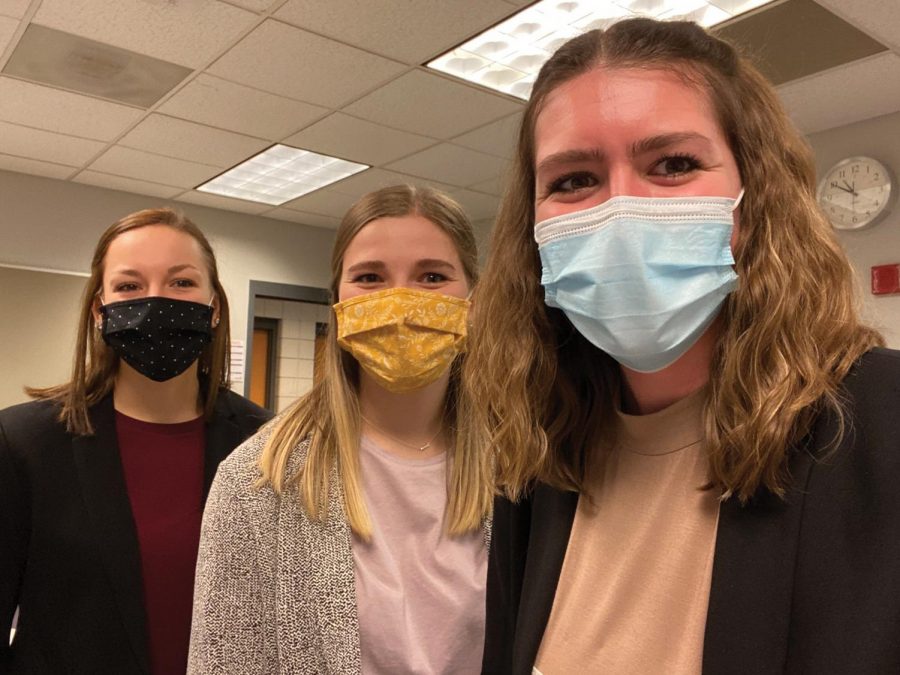Case study competition awards three UNI students
Lynn Kleyer, Kara Hooper, and MacKenzie Helle are all smiles as they win second-place awards at the National Case Study Competition in Health Education.
Mar 22, 2021
Three UNI students majoring in public health recently won second place in the National Case Study Competition in Health Education (NCSCHE). The competition took place virtually, bringing together 15 teams of public health students from 11 different colleges. Lynn Kleyer, Kara Hooper and MacKenzie Helle worked on the case study for three weeks, addressing breastfeeding disparities in a Louisiana county.
In order to compete, UNI students had to take specific public health courses and apply to join the team. Kleyer, Hooper and Helle met several times during winter break to review previous case studies for practice. Once they received this year’s topic, they worked together several hours per day to pinpoint risk factors and key stakeholders and to plan program strategies.
“This year, the competition focused on increasing the number of infants exclusively breastfed in Winn Parish, La. for the first six months of life and the percentage of infants still being breastfed to some degree at one year,” said Hooper.
The plan the UNI team came up with, titled “Latched On: A Gift That Lasts A Life” was presented to a board of judges from the Society for Public Health Education, a professional organization involved in public health education since 1950.
“This opportunity makes me proud to call myself a Panther,” said Kleyer in a university press release. “It was a crazy month, but I would not take it back. I am better equipped to join the public health field and have grown closer to my classmates because of it.”
The three students had the support of Disa Cornish, an associate professor at UNI who is both an advisor and professor within the Public Health program.
“I was so impressed by this group’s hard work,” said Cornish in the press release. “They put in months of preparation time and expertly used the skills and lessons from our public health program.”
The prize awarded to the students consisted of a trophy and certificates for each of them, although the opportunity for professional experience and practice in their field is what the students were mostly looking forward to when participating.
“We were all really ecstatic when we learned we had placed second! However, the goal was never to win,” said Hooper. “We were really focused on building upon the skills we learned through our public health curriculum, creating an impressive program and the overall experience of competing in a national competition.”








